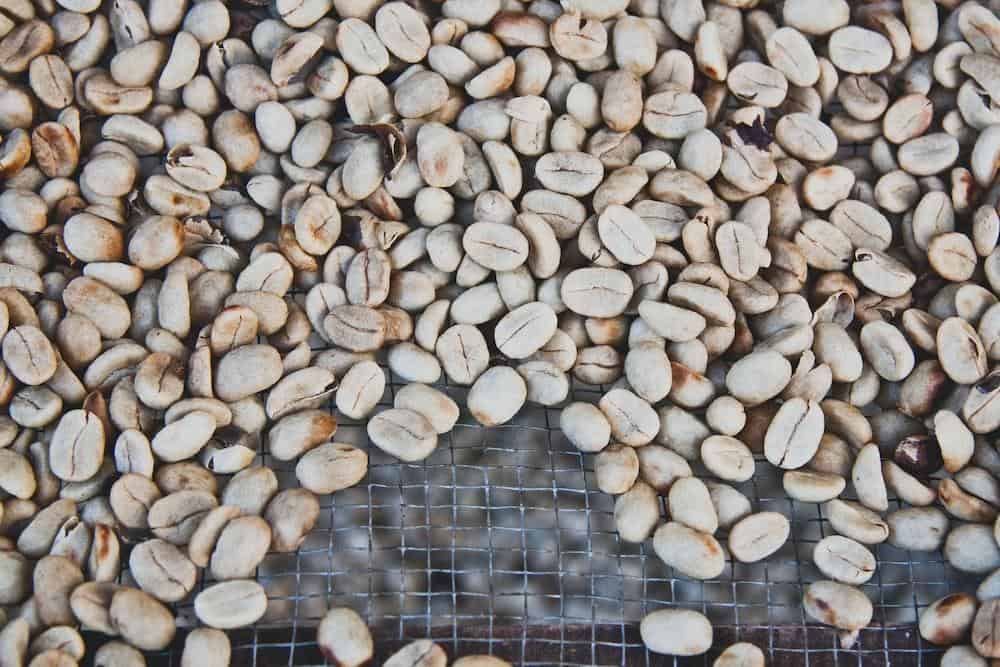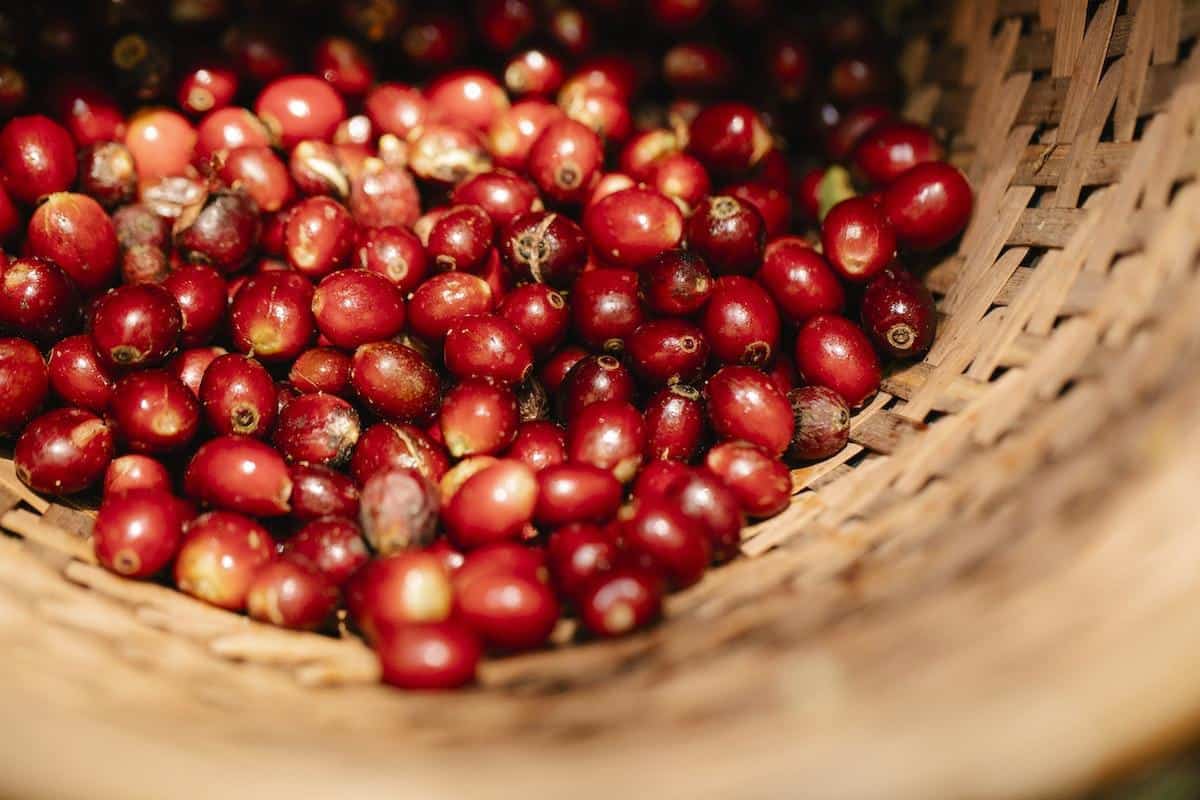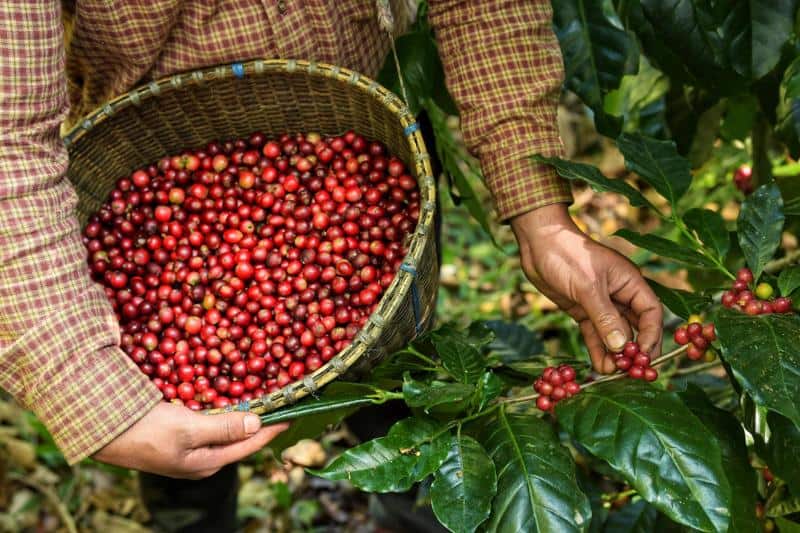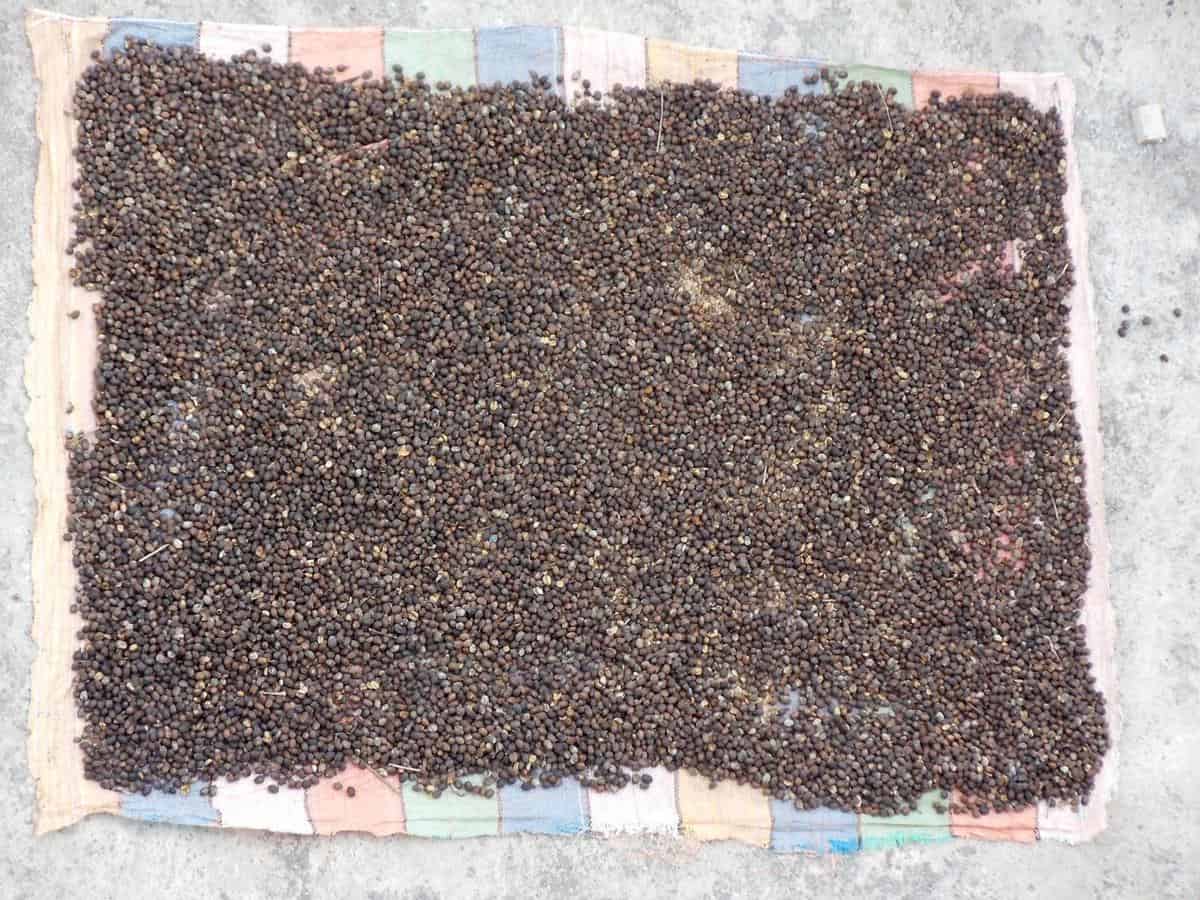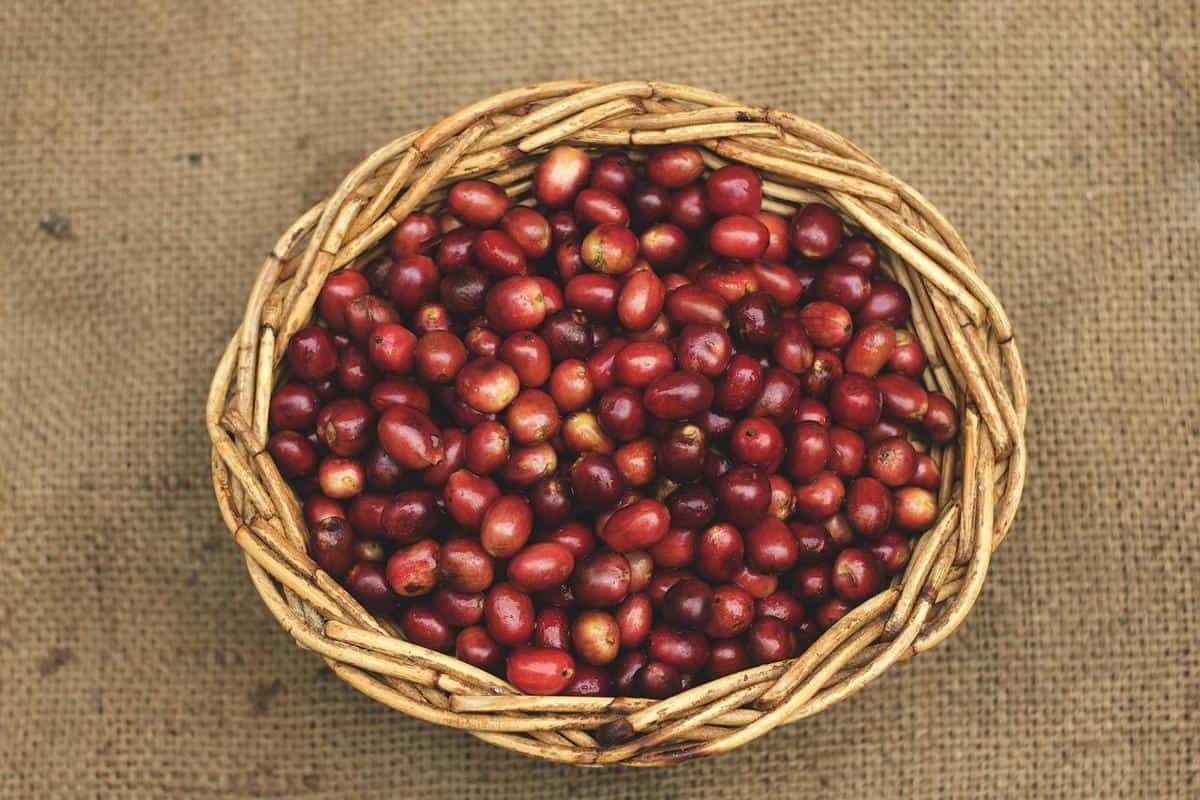White coffee bean has become the latest sensation in the world of coffee lovers, captivating palates with its unique flavors and enticing aroma. In this introductory section, we will delve into the rise of white coffee bean, exploring its origins and the reasons behind its growing popularity among caffeine enthusiasts.
But what exactly is white coffee bean? Unlike its darker counterparts, white coffee beans are roasted at a lower temperature for a shorter duration, resulting in a pale color and a milder taste profile. This lighter roasting process allows the natural flavors of the coffee to shine through, giving white coffee bean a truly distinct character.
The history of white coffee bean’s popularity can be traced back to Yemen, where it was initially consumed for its medicinal properties. Over time, word spread about this unique brew and it gained traction in other parts of the world. Today, white coffee bean has become a global phenomenon, captivating both seasoned coffee connoisseurs and curious novices alike.
As we embark on this exploration of white coffee bean, we will not only uncover its fascinating history but also dive deep into the science behind its appeal. Join us as we unravel the secrets behind this emerging brew trend and unlock the power that lies within every white coffee bean.
The Science Behind White Coffee Bean
White coffee bean is more than just a trendy beverage choice – it also has unique scientific characteristics that set it apart from regular coffee beans. Understanding the science behind white coffee bean can not only enhance your appreciation for this brew trend but also shed light on its potential health benefits.
White coffee beans undergo a distinct roasting process that sets them apart from their darker counterparts. While regular coffee beans are roasted until they reach a dark, rich color, white coffee beans are only lightly roasted or even left raw. This minimal roasting allows the beans to retain more of their natural flavors and aromas, resulting in a milder taste profile compared to regular coffee beans.
In terms of chemical composition, white coffee beans contain higher levels of certain compounds compared to regular coffee beans. One of these compounds is chlorogenic acid, which has been found to have antioxidant properties.
Antioxidants play a crucial role in neutralizing free radicals and preventing oxidative stress in the body, potentially reducing the risk of chronic diseases such as heart disease and cancer. Additionally, white coffee beans may also contain higher amounts of caffeine compared to regular coffee beans, providing an extra boost of energy.
These unique scientific characteristics of white coffee bean contribute to its increasing popularity among both casual drinkers and health enthusiasts. By harnessing the mild flavor profile and its potential health benefits, you can truly unlock the power of white coffee bean in your daily routine.
Understanding the Health Benefits of White Coffee Bean
White coffee bean has gained popularity not only for its unique taste and aroma but also for its potential health benefits. In this section, we will delve into the various ways in which white coffee bean can contribute to overall well-being. From antioxidants to potential weight-loss effects, let’s explore the health benefits that make white coffee bean a must-try for any health-conscious individual.
The Power of Antioxidants
One of the key health benefits of white coffee bean lies in its abundant antioxidant content. Antioxidants play a crucial role in neutralizing harmful free radicals in the body, which are known to contribute to chronic diseases and accelerate aging. White coffee bean, being less roasted than its darker counterparts, retains a higher level of antioxidants. This means that consuming white coffee bean may help reduce oxidative stress and protect against diseases such as heart disease, cancer, and neurodegenerative disorders.
Supporting Weight Loss Efforts
In addition to its antioxidant properties, white coffee bean has been associated with potential weight-loss effects. Research suggests that certain compounds found in white coffee bean may inhibit enzymes responsible for breaking down carbohydrates in the body.
By doing so, it is believed that white coffee bean may help prevent the absorption of some carbohydrates, thus reducing calorie intake and aiding weight loss efforts. However, more studies are needed to fully understand the mechanisms behind this effect and determine the appropriate dosage.
Regulating Blood Sugar Levels and Enhancing Digestion
Another potential benefit of white coffee bean is its ability to regulate blood sugar levels. Some studies have shown that certain compounds present in white coffee bean may help improve insulin sensitivity, making it beneficial for individuals with diabetes or those at risk of developing type 2 diabetes. Additionally, due to its composition and caffeine content, white coffee bean may also stimulate digestion and promote bowel movements. This can be particularly helpful for individuals experiencing constipation or sluggish digestion.
While these potential health benefits are promising, it is important to note that individual results may vary. As with any dietary changes or supplements, it is best to consult with a healthcare professional before incorporating white coffee bean into your routine, especially if you have any underlying medical conditions. With its unique composition and potential health effects, white coffee bean offers a fascinating dimension to the ultimate brew trend that cannot be overlooked.
White Coffee Bean vs. Regular Coffee Bean
One of the key factors that sets white coffee bean apart from regular coffee bean is its taste profile. While regular coffee beans are known for their bold and robust flavors, white coffee beans offer a unique and distinct taste experience. In this section, we will conduct a side-by-side taste comparison between white and regular coffee beans to explore the nuances in flavor and aroma that differentiate them.
When brewing white coffee bean, you can expect a milder and less acidic taste compared to regular coffee. It has a lighter body with subtle notes of nuttiness and sweetness. The flavor profile of white coffee bean can vary depending on the roasting process, but it generally offers a smoother and less bitter experience.
On the other hand, regular coffee beans tend to have a stronger and more pronounced flavor. They can range from bold and earthy to fruity or chocolatey, depending on the origin and roast level. Regular coffee often has higher acidity levels, which contributes to its characteristic tanginess.
To conduct a taste test between white and regular coffee beans, follow these steps:
- Use freshly roasted whole beans: For an accurate comparison, use high-quality whole beans for both types of coffee.
- Grind the beans: Grind each type separately using a burr grinder to ensure consistent particle size.
- Brew each type separately: Follow your preferred brewing method for each type of coffee.
- Observe the aroma: Take note of the aromas released by each cup of brewed coffee.
- Sip and compare tastes: Take small sips of each cup to fully experience and analyze their flavors.
- Consider mouthfeel: Pay attention to the texture or mouthfeel of each cup, noting any differences in body or smoothness.
- Evaluate aftertaste: Notice any lingering flavors or aftertastes that may differ between the two types.
By conducting this taste test, you can discover which type of coffee bean aligns more with your personal preferences. Some coffee enthusiasts may prefer the full-bodied and bold flavors of regular coffee, while others may appreciate the subtleties and milder taste of white coffee bean.
Unlocking the Ultimate Brew
White coffee bean has been gaining popularity in recent years for its unique taste and potential health benefits. To fully unlock the power of white coffee bean, it is essential to know how to properly prepare it. In this section, we will provide a step-by-step guide on how to brew white coffee bean for the best results.
Step 1: Choose Quality White Coffee Bean
To begin your ultimate white coffee bean brew, start by selecting high-quality beans. Look for reputable brands or specialty coffee shops that offer white coffee beans. It is important to ensure that the beans are fresh and have been properly stored to maintain their flavor and aroma.
Step 2: Grind the Beans
Next, you will need to grind your white coffee beans. The ideal grind size will depend on your preferred brewing method. For a drip coffee maker or pour-over method, a medium grind is generally recommended. If using an espresso machine, a finer grind is needed for optimal extraction.
Step 3: Measure the Coffee and Water
Once your beans are ground, it’s time to measure out the appropriate amount of coffee and water. The general rule of thumb is to use one tablespoon of ground white coffee per six ounces of water. However, feel free to adjust this ratio based on your personal preference for a stronger or milder cup of white coffee.
Step 4: Brew White Coffee
Now it’s time to brew. There are various methods you can choose from, such as using a French press, pour-over dripper, espresso machine, or even a traditional Turkish ibrik pot. Follow the specific instructions for your chosen brewing method and allow the water and coffee grounds to interact for the desired amount of time according to your taste preferences.
Step 5: Enjoy Your Ultimate Brew
Finally, once you’ve completed the brewing process, it’s time to sit back and enjoy your ultimate white coffee bean brew. You can choose to drink it as is, or you can enhance the flavor by adding milk, sweeteners, or spices like cinnamon or nutmeg. Experimentation is key when it comes to finding the perfect combination that suits your taste buds.
By following these steps and experimenting with different brewing techniques, you can truly unlock the power of white coffee bean and experience its unique flavors and aromas. Whether you prefer a bold espresso shot or a smooth cup of drip coffee, white coffee bean provides a versatile brewing experience that is sure to please any coffee lover.
Exploring White Coffee Bean’s Versatility in Recipes
White coffee bean is not only a popular beverage choice, but it also has great versatility when it comes to incorporating it into recipes. Whether you’re looking to add a unique twist to your morning routine or experiment with different flavors in your culinary creations, white coffee bean can be a fantastic ingredient to work with. Here are some creative ways to incorporate white coffee beans into drinks and food:
1. White Coffee Bean Smoothie Bowls:
Start your day off right with a refreshing and nutritious smoothie bowl infused with the flavors of white coffee bean. Combine frozen bananas, almond milk, a scoop of protein powder, and a shot of espresso made from white coffee beans in a blender. Blend until smooth and creamy and then pour the mixture into a bowl. Top it off with your favorite toppings like granola, sliced fruits, chia seeds, or shredded coconut for added texture and flavor.
2. White Coffee Bean Desserts:
Discover the rich flavors of white coffee bean by adding them to desserts like cakes, cookies, or puddings. Incorporate freshly ground white coffee beans into your favorite cake batter or cookie dough recipe for an interesting twist. The subtle hint of nuttiness from the white coffee bean will elevate the flavor profile of your desserts making them irresistibly delicious.
3. White Coffee Bean Cocktails:
Expand your mixology skills by experimenting with white coffee bean-infused cocktails. Start by infusing vodka or rum with crushed white coffee beans for a few days in an airtight container to extract the flavors. Then use this infused spirit as the base for cocktails like White Coffee Espresso Martini or White Coffee Bean Old Fashioned.
The versatility of white coffee bean extends beyond beverages as well. It can be used as a seasoning in savory recipes such as marinades for meat dishes or rubs for roasted vegetables. Be sure to explore various recipes and let your creativity shine when using white coffee bean in your culinary adventures.
Hype or Fact
White coffee bean has gained significant popularity in recent years, with many touting its potential health benefits and unique flavor profile. However, as with any trendy food or ingredient, there are bound to be some misconceptions and myths surrounding white coffee bean. In this section, we will address common misconceptions about white coffee bean and provide scientific evidence and expert opinions to either support or refute these claims.
One common myth about white coffee bean is that it contains less caffeine than regular coffee beans. While it is true that white coffee beans are generally roasted for a shorter period of time, resulting in a lighter color and lower acidity, the caffeine content can still vary depending on the specific type of coffee bean used.
According to a study published in the Journal of Analytical Toxicology, the caffeine levels in white coffee beans were found to be similar to those in regular coffee beans when comparing equal volumes.
Another myth surrounding white coffee bean is that it can aid in significant weight loss. Some believe that the high concentration of chlorogenic acid found in white coffee beans can boost metabolism and promote fat burning.
While there is some evidence suggesting that chlorogenic acid may have a modest effect on weight loss, more research is needed to determine its long-term efficacy. It’s important to note that any potential weight-loss effects would be best achieved through a combination of a balanced diet and regular exercise.
Lastly, there is a misconception that drinking white coffee can lead to whiter teeth due to its lighter color compared to regular brewed coffee. However, this claim is not supported by scientific evidence. The staining properties of coffee come from its high content of chromogens, which are present in both regular and white coffee beans. Therefore, consuming white coffee may still contribute to teeth staining over time.
The Future of White Coffee Bean
As the popularity of white coffee bean continues to rise, it is important to examine the trends and innovations that are shaping its future. The demand for white coffee bean has grown significantly in recent years, driven by its unique characteristics and potential health benefits. This section will explore the latest developments in the white coffee bean industry and predict future trends and innovations in white coffee bean consumption.
One trend that can be observed is the increasing availability of white coffee bean products. Previously, white coffee bean was primarily found in specialty coffee shops or purchased as whole beans for home brewing.
However, there has been a surge in the production of pre-ground white coffee bean products, making it more accessible to a wider range of consumers. This allows individuals who may not have access to high-quality specialty coffee shops or do not want to invest in expensive brewing equipment to still enjoy the unique flavors and potential health benefits of white coffee bean.
In addition to increased availability, there is also a growing interest in exploring different varieties and origins of white coffee bean. Just as with regular coffee beans, different regions produce beans with distinctive flavor profiles and characteristics.
This has led to an expansion in specialty white coffee bean offerings, allowing consumers to experience a wider range of tastes and aromas. As more research is conducted on different varieties of white coffee bean, it is likely that new flavor profiles will emerge and contribute to further innovation in the industry.
Overall, the future of white coffee bean looks promising as more consumers discover its unique qualities and potential health benefits. With continued advancements in production techniques and increased accessibility, we can expect to see even more innovative ways to enjoy this ultimate brew trend.
| Trend | Innovation |
|---|---|
| Increased availability | Production of pre-ground white coffee bean products |
| Different varieties and origins | Expansion of specialty white coffee bean offerings |
Conclusion
In conclusion, the rise of white coffee bean represents a revolution in the world of brewing and coffee consumption. Throughout this article, we have explored the unique characteristics, health benefits, and versatility of white coffee bean. From its distinct chemical composition to its potential weight-loss effects and ability to enhance digestion, there is no denying the power that lies within these beans.
One of the most intriguing aspects of white coffee bean is its taste. Through a side-by-side taste test with regular coffee beans, we have discovered the nuances in flavor and aroma that set white coffee bean apart. Its smooth and delicate profile appeals to those seeking a milder yet satisfying cup of joe.
For those wanting to unlock the ultimate brew experience, we have provided a step-by-step guide on how to properly prepare white coffee bean. By following recommended brewing techniques and utilizing the right equipment, readers can achieve optimal results in their cup.
The versatility of white coffee bean extends beyond traditional brewing methods. We have delved into unique recipes and ways to incorporate white coffee bean into drinks and food, adding different flavor profiles to various culinary creations.
As with any trend, there are bound to be misconceptions surrounding white coffee bean. However, we have debunked common myths by providing scientific evidence and expert opinions that support its benefits. The future of this industry looks promising as it continues to evolve with new trends and innovations.
In embracing this White Coffee Bean Revolution, readers are encouraged to explore and enjoy all that this ultimate brew trend has to offer. Whether for its unique taste or potential health benefits, incorporating white coffee bean into your daily routine may just usher in a new era of enjoyment for all caffeine enthusiasts. So go ahead, unlock the power of white coffeebean and relish in its endless possibilities.
Frequently Asked Questions
What are white coffee beans?
White coffee beans are a unique type of coffee bean that undergoes a different roasting process compared to traditional brown or dark roasted coffee beans. These beans are processed at a lower temperature and for a shorter duration, resulting in a lighter color and less acidic taste.
The term “white” refers to the pale shade of the beans after roasting, rather than any specific variety of coffee bean.
What is a white coffee called?
A white coffee is not actually referred to as “white coffee” in the context of a particular brew or drink. The term “white coffee” is commonly used in Malaysia and Singapore to describe a certain style of roasted coffee beans known for their light color.
However, it is worth noting that in Western countries, specifically the United States, “white coffee” can also refer to adding milk or creamer to regular brewed coffee.
What is a white coffee in UK?
In the UK, “white coffee” typically refers to a type of coffee that does not contain any milk or dairy products. It is essentially black or brewed coffee served without any added creamer or milk. This usage relates more to the absence of milk rather than the specific style of roasting or type of bean.
What is the difference between white and brown coffee beans?
The main difference between white and brown (or dark) coffee beans lies in the roasting process they undergo. Brown (or dark) roasted beans go through an extended period of high-temperature roasting, resulting in rich flavors, dark brown color, and often an oily surface texture.
Conversely, white-coffee beans are roasted at lower temperatures for shorter periods, leaving them with a lighter color and milder flavor profile.
What is the difference between white coffee and regular coffee?
The primary difference between white coffee and regular brewed coffee lies in the roasting process and resulting flavor profiles. White coffee is made from lightly roasted beans, which yields a light-bodied brew with subtle flavors and less acidity compared to traditionally roasted coffees.
On the other hand, regular brewed coffee generally uses medium to dark-roasted beans, resulting in a darker and more robust flavor profile. Additionally, white coffee is often associated with specialty or artisanal brewing methods that highlight the subtle flavors of the lightly roasted beans.

